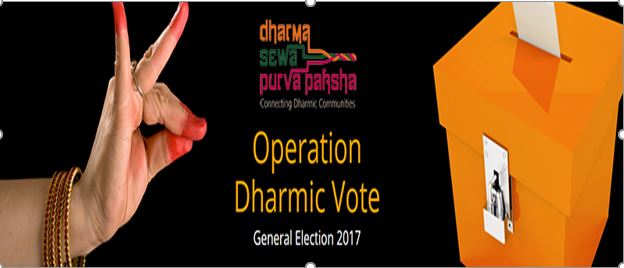The British General Election of June 2017 has once again focused minds on the caste discrimination law. The British public must ensure that their elected representatives make a commitment that the law on caste discrimination is removed.
A pending Government consultation closes on 17 July 2017. However, it forces respondents to make a choice between retention of the case law and implementation of the section 9(5) duty to make caste an aspect of race. The government prefers the retention of the case law option. That will result in caste being read into legislation wherever the word race appears, including the criminal law. No debate has ever taken place about extending criminal laws by the courts in this illegitimate manner.
The Government consultation already acknowledges that no satisfactory evidence supports any law on caste and correctly says that caste cannot be defined. It must follow through with the logical consequences of those observations and rid the public of the caste law and election candidates must now commit to that.
The Anti Caste Legislation Committee (ACLC), voicing the concerns of a wide cross-section of the community, regards both options as dangerous, with the potential to create conflict within the community, the encouragement of spurious claims, and foster attacks on the religious and associational freedoms of the community.
Minesh Patel, Head of the Harrow firm Law Partnership Solicitors represented the defendants in the Tirkey v Chandhok case. He observed, “I have seen an innocent couple not only lose their house after a claim was made on spurious grounds, but also made potentially liable for upwards of £250,000 in lawyers’ costs. That could happen to any member of the community. That case has now become the precedent on which caste claims are to be brought and which the Government appears to support. That cannot be right.”
In pledging to “Outlaw caste discrimination” in its manifesto, the LibDems have ignored the lack of evidence, the impossibility of implementation, and the havoc that would be caused for British communities. Conservative and Labour candidates have so far shown little solidarity with the community to repeal the legislation and case law. There has been much lip service, fobbing off the electorate with excuses, and blaming the community, which never asked for the law in the first place.
Prakash Shah, Reader in Cultural and Law at Queen Mary, University of London and author of the report, Britain’s Dharmic Communities and the General Election 2015 says, “The level of ignorance among parliamentarians, many of whom actually supported the law, is staggering. The election provides an opportunity for the electorate, which appears to be increasingly likely to vote tactically, to put their candidates to the test. The caste law is probably the most important legal change likely to affect lives especially of Britain’s Indian community. The candidates I have spoken to seem to underplay or underappreciate that.”
But Conservative MP Bob Blackman, who plans to see off competitors to his Harrow East seat, strongly supports repeal. “Having studied the Anti Caste Legislation Committee’s (ACLC) briefing papers on the potential impacts on individuals, businesses, community organisations and public authorities, and their assertion that case law could end up with adverse consequences, if re-elected, I would seek the support of the government and fellow MP’s to repeal both the caste clause in the legislation and Parliament to overturn any adverse judgements in case law.”
Dharma Seva Purvapaksha media group leader, Mr Mukesh Naker, who is running Operation Dharmic Vote during GE2017, says he plans to take election candidates to task on their position on the caste law: “Those not providing adequate responses will have to face the electoral consequences. This is going to be an important issue in many marginal constituencies. Candidates are being brought up to speed on this and are generally reacting favourably once the facts are made clear. Some are still fudging the issue though. Political parties must take notice that they cannot take the Dharmic voter for granted as before. We are now dealing with a savvy generation.”

Readers like you, make ESHADOOT work possible. We need your support to deliver quality and positive news about India and Indian diaspora - and to keep it open for everyone. Your support is essential to continue our efforts. Every contribution, however big or small, is so valuable for our future.












Those marginal constituents like north ilford I personally would like reelection of conservatives
The Labour Party not only ignores the Hindus but takes comfort from the fact that the Muslims are always going to vote for them hence us Hindus are devoid of active voice in majority labour administrations like Newham Waltham Forest Luton etc Labour MPs unlike Bob Blackman never support any motion which highlights the plight of resettlement of Kashmiri pundits and we could see repeat of discrimination eyed out by Labour politician as basically they want the reminder of Indian community divided So pl beware and do or let them have the benefit abstain or don’t vote for Labour
I read the comments by Bharat Parmar and would suggest him please only make your comments after knowing fully what is happening in the Country. Let me explain in brief. There are very few Hindu members of the Labour party . It is not Labour party fault. Any Hindu who wants to become member of any party in Britain is free to do so . Any one blaming should blame himself or herself.